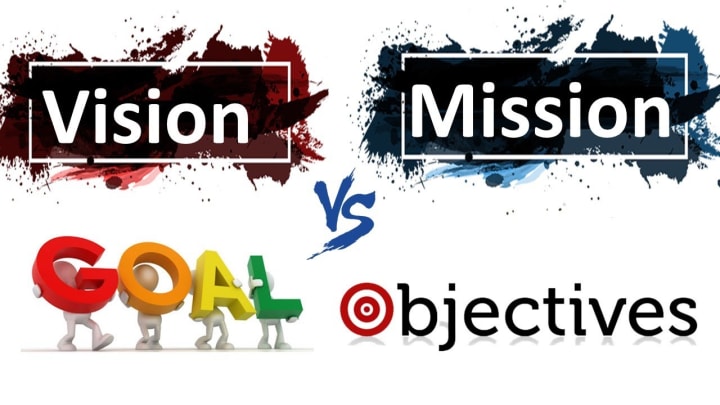What Determines a Company's Success?
What Determines a Company's Success?

- Introduction:

A flourishing firm is the result of a complex interplay of elements that contribute to success in the corporate world. Understanding what factors into a company's success, whether it be a startup, small business, or global organization, is crucial for long-term development and profitability. In this article, we'll examine the essential components that are crucial to a company's success.
- Vision and Objectives:
Every successful business has a clear vision and purpose at its core. A clear vision that outlines the organization's long-term goals and the strategy it will use to get there acts as a compass. It creates a shared sense of direction through motivating and inspiring stakeholders, investors, and workers.
A compelling mission also transcends material success. Businesses having a greater mission, such as improving society or the environment, are more likely to draw clients and staff who share their beliefs. This not only encourages loyalty but also improves the company's legitimacy and reputation, two essential elements for long-term success.

- Powerful Leadership:
Any successful organization depends on strong leadership. A skilled leader can motivate and empower the team in addition to articulating a clear goal. Strong leadership encourages a culture of creativity, cooperation, and accountability, providing a setting where people may thrive and give their best.
Additionally, effective executives take strategic decisions that advance the business. They can change quickly, are open to it, and see the big picture. They also surround themselves with a skilled and varied leadership team, ensuring that the business gains from a diversified variety of viewpoints and specializations.

- Client-Centered Approach:
A customer-centric strategy is essential to establishing long-term success. Strong connections, brand loyalty, and repeat business are more likely to result from businesses that put an emphasis on understanding and addressing consumer demands. In a cutthroat industry, it's essential to pay attention to client input and make the required modifications.
In order to track changing customer preferences and new trends, successful businesses engage in market research. They make use of this information to create goods and services that not only satisfy the requirements of the present but also those of the future. Companies may remain flexible and responsive while keeping the consumer at the core of their plans, resulting in sustained development.

- Outstanding Goods or Services
The caliber of the goods or services a business provides may make or break its success. Exceptional customer service and offering answers to customers' problems are characteristics of successful companies. Exceeding expectations is more important than simply meeting them.
To consistently advance and innovate, spending money on research and development is essential. A corporation runs the danger of losing its competitive advantage if it stagnates and is unable to adjust to shifting market needs. Keeping up with trends and routinely improving goods or services not only pleases current clients but also draws in new ones.

- Engaged and Talented Workforce
Any company's success is a direct result of the skills and commitment of its workforce. A multidimensional process, creating a competent and motivated staff starts with luring top people with competitive pay, a supportive workplace environment, and advancement prospects.
Businesses that place a high priority on worker well-being, work-life balance, and professional growth encourage commitment and loyalty. Engaged workers are more likely to be effective, creative, and customer-focused, which helps the business succeed as a whole.
Companies should set clear goals and offer regular feedback and reward to keep their workforces engaged. Employees can take pleasure in their job by developing a sense of ownership and empowerment because they understand how crucial they are to the company's success.

- A Successful Business Strategy
For a corporation to achieve its objectives, a clear and adaptable business plan is crucial. A profitable business examines market trends, spots opportunities, and weighs potential dangers. They develop a strategy plan based on this analysis that is in line with their vision and mission.
A strong company plan outlines both short- and long-term goals as well as the methods needed to get there. Effective resource allocation, budgeting, and risk management are all part of it. The organization stays relevant and robust in the face of adversities by routinely assessing and modifying the strategy depending on market conditions.

- Management of finances and sustainability
An organization's performance is largely dependent on its financial management. For sustainable growth, accurate accounting, budgeting, and cash flow management are crucial. Finding the right balance between funding expansion and preserving financial stability is essential.
A successful business searches out several revenue streams and avoids being overly dependent on one. The business is able to weather economic downturns and seize development opportunities thanks to prudent financial management. Maintaining openness in financial reporting also fosters confidence among stakeholders and investors.

- Successful branding and marketing
How well a firm conveys its value to the target market has a significant impact on its performance. A strong brand identity, increased exposure, and consumer attraction depend on effective marketing and branding initiatives.
Marketing strategies may be more effectively tailored when the requirements and preferences of the target market are known. Social media and digital marketing platforms let businesses reach a bigger audience and interact with consumers in real time.
Building confidence in a brand through consistent branding across all touchpoints. The foundation of client loyalty is a company's well defined brand identity, which distinguishes it from its rivals.

- Conclusion

It takes a comprehensive strategy to succeed in the business world, which is a complicated task. Strong leadership, a focus on the client, and a clear vision and purpose are all characteristics of a successful business. Businesses build a strong base for development by providing outstanding goods or services and developing a skilled and motivated team. Successful marketing, financial management, and business strategy all increase the likelihood of long-term success. Companies may overcome obstacles and maintain competitiveness by identifying and maximizing these crucial variables, eventually attaining their objectives and leaving a long-lasting impression on the market.
About the Creator
Enjoyed the story? Support the Creator.
Subscribe for free to receive all their stories in your feed. You could also pledge your support or give them a one-off tip, letting them know you appreciate their work.






Comments
There are no comments for this story
Be the first to respond and start the conversation.